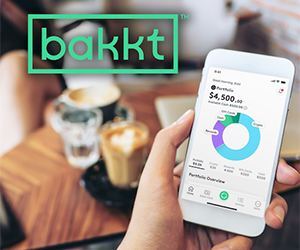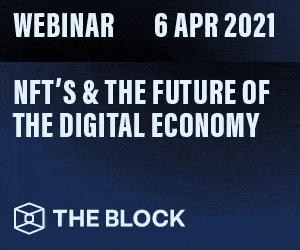Smart Contract Allows Ethereum Blocks to be Reordered
Key Takeaways
- A new smart contract allows for Ethereum blocks to be reordered.
- The contract has sparked debate over the immutability of blockchain technology.
- Ethermine, the world’s largest Ethereum mining pool, said it will not use the new contract.
A Solidity developer has sparked debate after releasing a smart contract that allows for the reorganization of transactions on the Ethereum blockchain.
A Blockchain Reorganization Mechanism
The Ethereum network’s immutability has been called into question.
A Solidity developer posting under the pseudonym “0xbunnygirl” sparked debate on Twitter this weekend after revealing a mechanism that allows for the reorganization of the Ethereum blockchain. It creates a way for transactions that occurred in the past to be reordered or undone if enough of the network reaches a consensus.
A post made by 0xbuunygirl on Jul. 10 detailed how the smart contract, called “Request For Reorg,” creates a mechanism that allows users to pay miners to reorganize the blockchain.
0xbunnygirl explained how the new smart contract could be used to revert a hack. If an exchange was hacked, it could use the contract to incentivize miners to re-mine the block in which the hack transaction was originally mined. If the block was successfully re-mined without the hacker’s transaction, the miner would receive a reward from the exchange.
While some Twitter users view the ability to reorganize the blockchain as a feature, others see it as a vulnerability, warning that the new contract would most likely be used for malicious purposes.
One user, Daniel Goldman, went so far as to create a “Request For Deorg” contract in opposition, aiming to disincentivize the reorganization of the blockchain.
Also responding to the Request For Reorg contract, the world’s current largest Ethereum mining pool, Ethermine published a statement on Twitter assuring the community that it considers the reorg contract akin to an attack on the Ethereum network, adding that it would not be using it.
Immutability has long been touted as one of the biggest strengths of blockchain technology. However, this conception may be changing in light of recent events. Angela Walch, a Research Associate at UCL Centre for Blockchain Technologies, has long held the view that calling blockchains immutable is misleading. Discussing the Request For Reorg incident on Twitter, Walch stated that, “Blockchains are unchangeable only if the people who comprise them *choose* not to change them.”
Other users on Twitter have stated that Ethereum’s planned merge to Proof-of-Stake would alleviate concerns of reorganization, but whether or not this is the case is still not clear. While discussion over the immutability of blockchains continues, one thing is certain; the possibility of a reorganization event is now stronger than ever.
Disclaimer: At the time of writing this feature, the author owned BTC and ETH.
The information on or accessed through this website is obtained from independent sources we believe to be accurate and reliable, but Decentral Media, Inc. makes no representation or warranty as to the timeliness, completeness, or accuracy of any information on or accessed through this website. Decentral Media, Inc. is not an investment advisor. We do not give personalized investment advice or other financial advice. The information on this website is subject to change without notice. Some or all of the information on this website may become outdated, or it may be or become incomplete or inaccurate. We may, but are not obligated to, update any outdated, incomplete, or inaccurate information.
You should never make an investment decision on an ICO, IEO, or other investment based on the information on this website, and you should never interpret or otherwise rely on any of the information on this website as investment advice. We strongly recommend that you consult a licensed investment advisor or other qualified financial professional if you are seeking investment advice on an ICO, IEO, or other investment. We do not accept compensation in any form for analyzing or reporting on any ICO, IEO, cryptocurrency, currency, tokenized sales, securities, or commodities.
See full terms and conditions.
Source: Read Full Article



